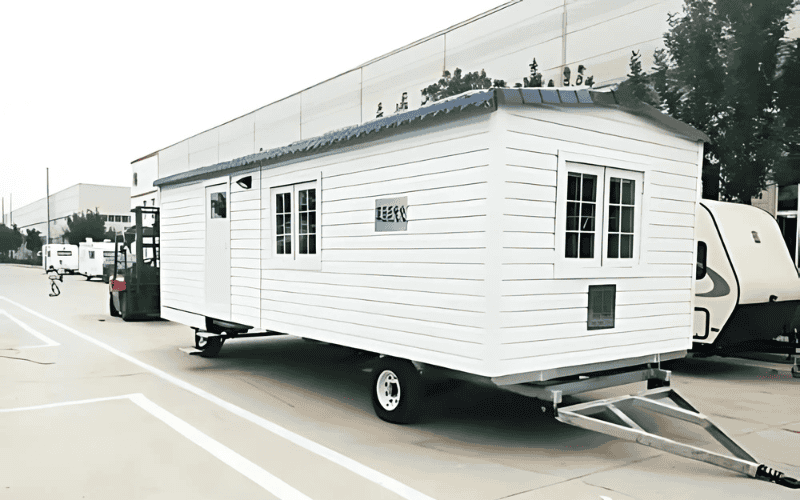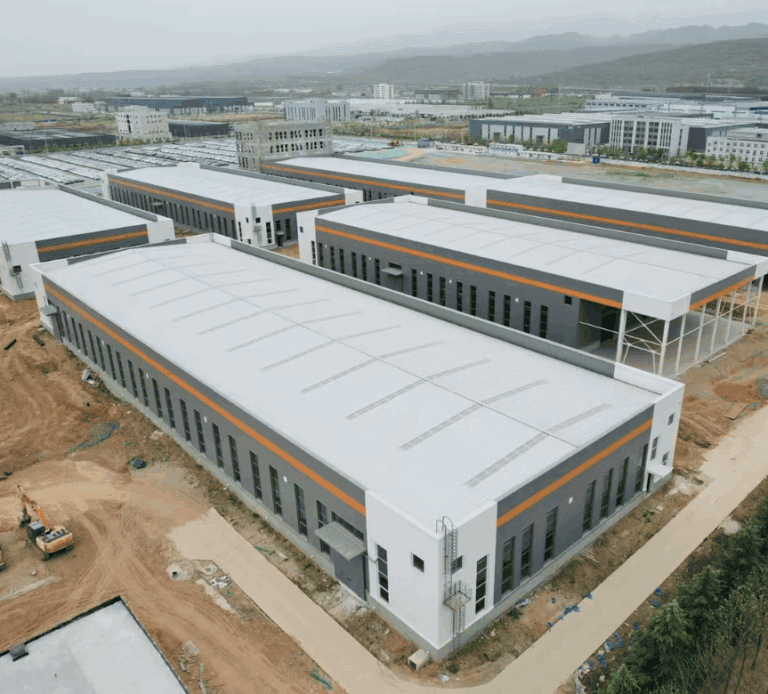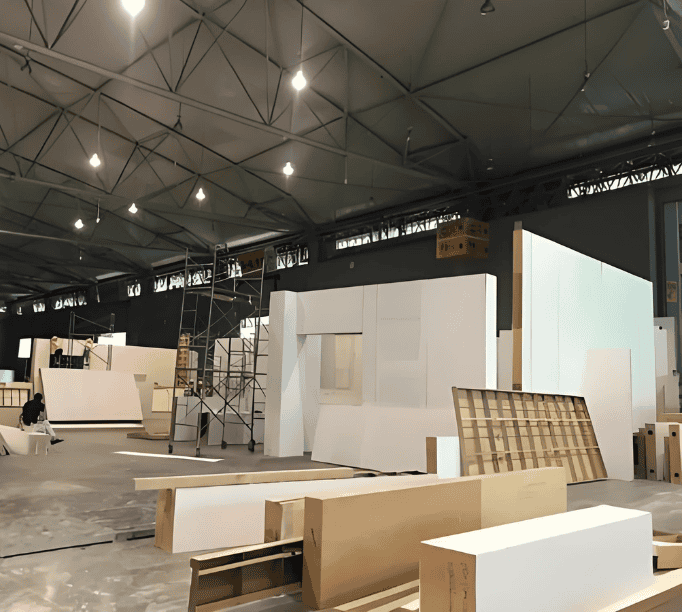Are manufactured homes the same as trailers? While many people use these terms interchangeably, they are actually quite different. A manufactured home is built to meet strict construction standards, making it a long-term, durable living option, whereas a trailer is typically a temporary or mobile structure.
But why do so many people confuse the two? In this article, we’ll explore the key differences between manufactured homes and trailers, including their construction standards, mobility, and legal classifications. We’ll also clarify common misconceptions and help you understand why it matters when making housing decisions.
What is a Manufactured Home?
A manufactured home is built in a factory and then moved to a specific site for installation. These homes are constructed in segments and assembled onto a permanent foundation. They are required to adhere to specific building standards outlined by the HUD Code (U.S. Department of Housing and Urban Development), which guarantees their durability, safety, and habitability, equivalent to that of conventional homes.
What is a Trailer?
A trailer is a type of transportable structure designed to be moved, usually by being towed behind a vehicle. Unlike manufactured homes, trailers are not built to be permanent dwellings. They are often used for temporary purposes or as a way to transport goods. Some trailers, like travel trailers, are designed for living spaces, while others are designed for hauling items.
Common Uses and Types of Trailers
There are many types of trailers, each used for different purposes. Here are some common examples:
- Travel Trailers: These are used for recreational purposes and can be towed behind vehicles for vacations or camping trips.
- Utility Trailers: Designed for hauling goods, such as construction materials, vehicles, or equipment.
- Mobile Homes: Older versions of manufactured homes, often smaller and built before the HUD Code standards were established.
- Cargo Trailers: Typically used for transporting goods from one location to another.
Unlike manufactured homes, trailers are usually smaller, less durable, and often used for temporary or mobile purposes.
Key Differences Between Manufactured Homes and Trailers
Construction Standards
One of the main differences between manufactured homes and trailers is the building codes they must follow.
- Manufactured homes are built to strict standards set by HUD regulations. This code regulates the construction, design, and installation of the home to ensure safety, durability, and habitability. These homes are required to comply with specific guidelines concerning structural integrity, fire safety measures, and energy efficiency standards.
- Trailers, on the other hand, do not follow these same strict standards. While some types of trailers, like travel trailers, have safety requirements for road use, they are not built to the same long-term residential standards. Many older mobile homes (built before the HUD Code) also did not meet these modern standards and could be less durable.
Mobility and Foundation
Another key difference is in how these structures are installed and their mobility.
- Manufactured Homes typically need a permanent foundation. This allows the home to stay securely in place and be used as a long-term dwelling. While they can be moved to a new location, they are not intended to be relocated frequently once installed. The foundation provides stability and supports the home’s long-term use.
- Trailers are often designed for easy mobility. They can be towed behind vehicles and relocated regularly. While travel trailers are made to be portable for vacations or temporary stays, they are not typically intended for permanent living. They are more mobile but less stable compared to manufactured homes.
Legal Definitions
The law makes a distinction between mobile homes and trailers on the basis of their construction techniques and designated purposes.
- Manufactured Homes are classified as permanent dwellings under the law. They must adhere to specific regulations that guarantee their safety, durability, and suitability for extended periods of use. This classification allows owners of manufactured homes to apply for the same types of mortgages, insurance, and property taxes as owners of traditional homes.
- Trailers, however, are usually considered temporary or mobile structures. Depending on their use and whether they are stationary or mobile, trailers may not be eligible for the same legal protections or benefits as manufactured homes. In some places, trailers are subject to different zoning laws and regulations, often limiting their use as permanent residences.
Related Reading: Mobile home vs Manufactured home

Why Are Manufactured Homes Often Confused with Trailers?
Several factors contribute to the misunderstanding that manufactured homes and trailers are the same:
Similar Mobility: Both manufactured homes and trailers are built to be transportable. Since manufactured homes were originally designed to be movable, some people still associate them with trailers, even though the modern manufactured home is often placed on a permanent foundation.
Outdated Terminology: The term “mobile home” is still used by many people, even though it was officially replaced in 1976. This outdated terminology continues to blur the line between manufactured homes and trailers, leading people to think they are interchangeable terms.
Design Similarities: In the past, both trailers and early mobile homes had similar designs, with smaller sizes and simple layouts. Over time, manufactured homes have evolved to offer more spacious and customizable options, but the initial design similarities still influence how people view them.
These common misconceptions can create confusion, but understanding the evolution of these homes and their modern standards can help clear up any misunderstandings.
Practical Considerations for Purchasing a Manufactured Home or Trailer
Cost Comparison
Manufactured homes are generally more expensive than trailers due to their compliance with strict HUD standards for long-term living. They use better materials, have more durable construction, higher energy efficiency, and often feature a permanent foundation, increasing both cost and value.
Trailers are more affordable initially but are not designed for long-term living. They may require more maintenance and repairs, especially if used as permanent housing, and tend to lose value over time. In contrast, manufactured homes can appreciate in value if properly maintained.
For long-term investment, manufactured homes offer better value for money, providing a durable, comfortable living space, while trailers are often seen as temporary structures.
Longevity and Durability
Longevity and durability are key factors when purchasing a home. Manufactured homes are built to last for decades, meeting HUD Code standards and using high-quality, energy-efficient materials. With adequate upkeep, they can endure for 50 years or longer, comparable to conventional homes.
Trailers have a shorter lifespan. While portable, they are less durable and often not designed for permanent living. Frequent moving and lower-quality materials can cause them to degrade faster.
For long-term living, manufactured homes are a more durable and lasting choice compared to trailers.
Customization Options
One benefit of manufactured homes is their customization options, similar to traditional homes. You have the option to select from a variety of floor plans, interior decorations, exterior designs, and energy-saving features. Some manufacturers even allow custom designs to meet specific needs.
In contrast, trailers offer limited customization. They typically come in standard designs with only small modifications possible, such as adding accessories.
For those seeking a home tailored to their preferences, manufactured homes provide far greater flexibility and customization.
Take the next step toward your perfect home
Are you ready to invest in a home that offers affordability, customization, and long-term value? Our team is here to help. From choosing the right floor plan to exploring financing options, we provide all the guidance you need to make an informed decision.
Get a Personalized Consultation: Speak directly with one of our experts to learn how a prefab home can meet your unique needs.
Browse our inventory: Browse a variety of customizable prefab homes to find the one that best fits your lifestyle.
Contact us today to schedule a consultation or request more information. Let us turn your vision of the perfect home into reality today!

